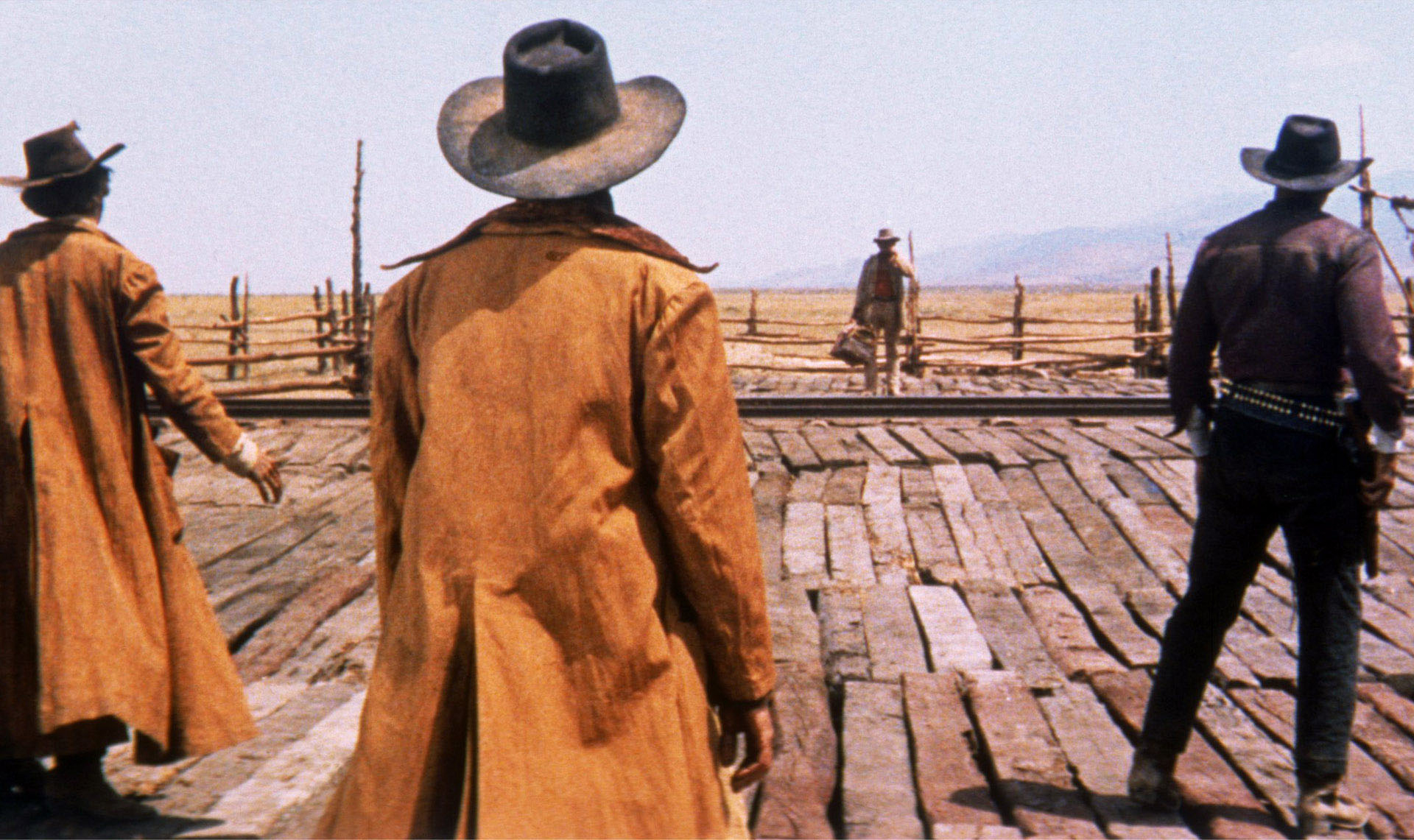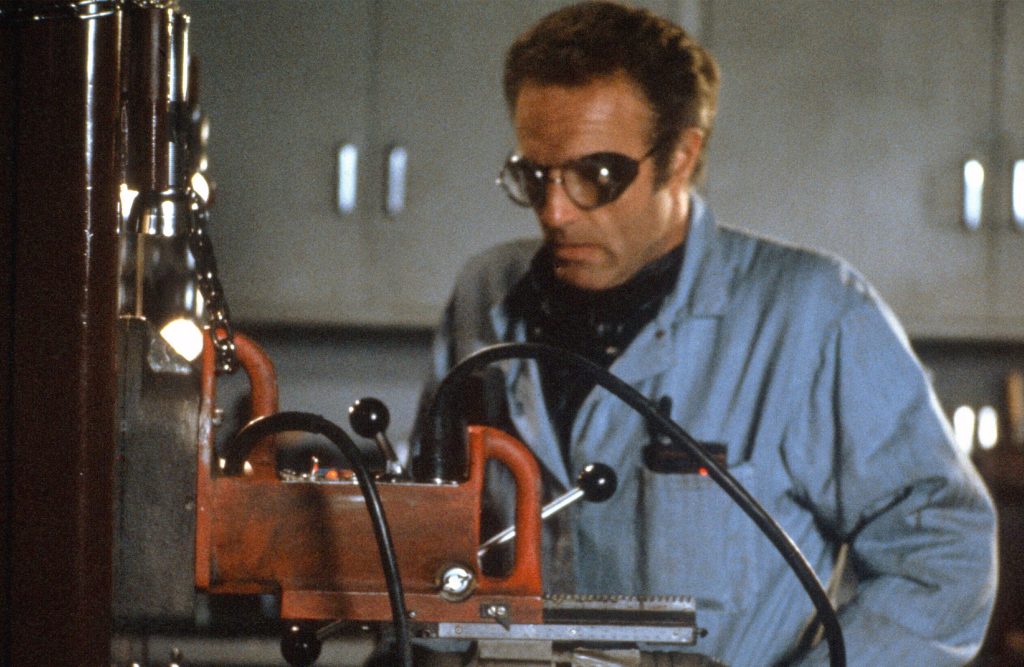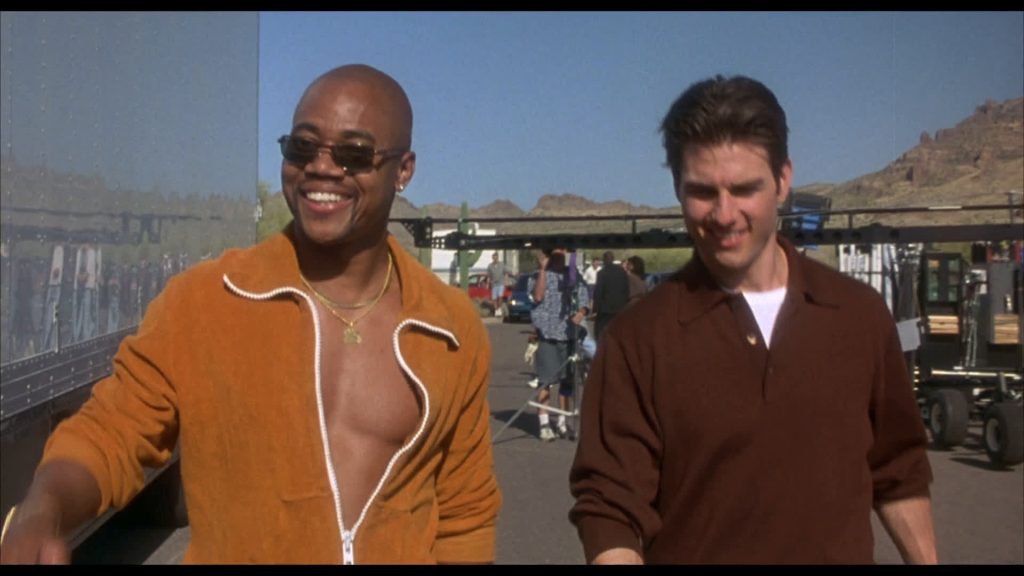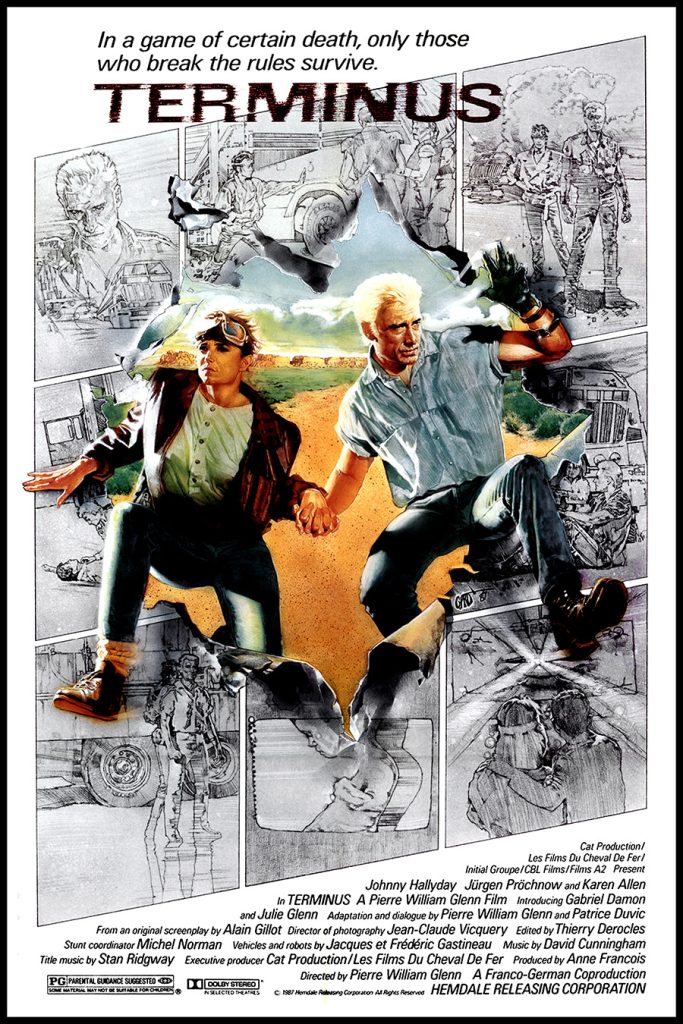
By dumb luck, I found myself watching several very long movies, almost all in a row, including Thief (1981), Jerry Maguire (1996), and Once Upon a Time in the West (1968).
By Emad Aysha
Believe it or not, the most boring movie where you felt the time was none other than Jerry Maguire. After the first half hour, you felt exhausted, and you dreaded the rest of the movie for about 2 hours and 16 minutes.
Not so with Thief, which weighs in at 2 hours and 6 minutes. You positively zoomed through that feature, with director Michael Mann at his best. There are many reasons for this, but one significant one is the music.

DRILL ROUTINE: The opening sequence of 'Thief'. All work and no play does not make James Caan a dull boy. (Just a lonely one).
It’s full of energy, excitement, and elation. It is a heist movie, after all, albeit with tragic dimensions. (It’s not really an action movie or even a thriller, but a crime drama with broken hearts and broken promises.) Other reasons include the cinematography.
You won't feel the time if you like what you’re looking at because it's filmed nicely or intelligently. And Michael Mann uses the show-don’t-tell method, which involves not explaining things to create intrigue and pull you through your curiosity to the next scene.
To illustrate this sci-fi point, we have that German production I reviewed before, Terminus (1987). This film keeps you spellbound with cool rock singing, nice techno visuals, and lots of unanswered questions about the plot, characters, and world-building.
It’s just under an hour and a half, and it felt longer than Thief but much faster than that first half hour in Jerry Maguire. The other comparison is the nearly 3-hour spaghetti Western classic Once Upon a Time in the West.
Breathtaking visuals and opulent music are keystones to stopping you from getting bored with Sergio Leone’s notoriously elongated sequences, which are accurate enough. Still, character and dialogue are just as important.
The older filmmakers understood many ways to keep people interested. One is a mixture of humour and intrigue, which is so nicely evident here. Tense situations are diffused through witty dialogue.
Characters are forceful, but finding a way around a clash through jibes makes you admire the characters all the more. What do you have in Jerry Maguire instead? A bunch of crybabies feeling sorry for themselves and not getting out of tense situations, but talking to each other's backs instead, because nobody can handle confrontations.
That’s literally what happens, hence the endless talking sessions with the stilted wives and the back-and-forth that goes nowhere between Tom Cruise and Cuba Gooding Jr. Who’s going to admire that?
I’d say time is the culprit here, namely, the era that these movies come from. Michael Mann and Sergio Leone date back to the overlapping eras of the 1960s, 1970s, and 80s, whereas the bland person responsible, Jerry Maguire, is clearly stuck in the 1990s, an era that we’re still saddled with to this day.

UNCOOL DUDES: Cuba Gooding jr. and Tom Cruise taking a break from stressing out the audience in 'Jerry Maguire'. Art really shouldn't imitate life.
Everybody has wussed out. Those older eras of filmmaking were still governed by the industrial age, and with the Cold War going on with the threat of nuclear annihilation, but since then, people have found the time to talk about themselves and nothing else, because there are no pressing issues anymore.
I should add that James Caan, the star of Thief, also sells the movie and keeps you waiting for the next scene through his charisma. Something again notoriously missing from 1990s movies since everybody’s turned into a wuss or charisma-void.
To bring back that minor sci-fi flick, you have plenty of charisma on display, whether from the erstwhile hero, Johnny Hallyday, the multiple villains played by Jürgen Prochnow, Karen Allen’s character, and even he onboard computer Monster (Louise Vincent).
Even the children have character here and aren’t just on board for the ride. But I suppose we can blame Tom Cruise for all that, having everyone as a support character for him. I was disappointed in Renee Zellweger, too.
The 1990s is the era of the unchecked ego, for both actors and directors, apparently. For another sci-fi connection, we have Paul ‘the Wuss’ Atreides, aka Timothée Chalamet. He is someone you want to punch in the face half the time, only to realise that you’ve already punched him, which explains his misshapen jowls and oversized, delicate mouth.
Oh, I almost forgot. Other long, long movies I watched were WWII epics, like The Longest Day (1962) and Das Boot (1981). You have a veritable galaxy of interesting, forceful, or sympathetic characters in both films, and everyone gets to have their say or their moment in helping win (or lose) the war.
Talk about good writing, and your journey with them carries you through to the end, no matter how many hours go by. Some are scared shitless at first, but they get over it by the end, learning from the examples of others who ‘have’ to be strong.

CONCEPT CLEAR: The objective of science fiction is not to be factually accurate but to dazzle. Sometimes a low budget helps.
You don’t see that in Jerry Maguire and Dune Part One, which is why things drag so damn much. Not to mention that the filmmakers responsible for both insist on wasting your time, adding unnecessary details through boring scenes.
I know I’m offending people here, but Jerry Maguire is overrated. It's shot in a way that leaves you feeling trapped inside a room even when you’re on the outside.
That’s quite a feat for a football stadium, but look at the oversized mess that is Dune Part One. Terminus has big rooms with neon strips, many open spaces filled with trucks going back and forth, and natural scenery to keep your mind preoccupied.
What’s happening to the world? Do we need a pre-industrial revolution to make proper movies again?






